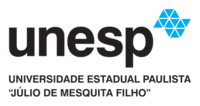Apresentação da edição especial "Ampliando horizontes curriculares: reconstruindo a educação a partir da diferença"
DOI:
https://doi.org/10.18675/1981-8106.v34.n.68.s18633Palavras-chave:
Currículo, Didática, Formação de Professores, Política Educacional, Avaliação, Ensino/EducaçãoResumo
Apresentação da edição especial "Ampliando horizontes curriculares: reconstruindo a educação a partir da diferença"
Referências
ALVES, N. A compreensão de políticas nas pesquisas com os cotidianos: para além dos processos de regulação. Educ. Soc., Campinas, v. 31, n. 113, p. 1195-1212, out./dez. 2010.
CONNELLY C, F.; CONNELLY C, G. Curriculum policy. In: KRIDEL, C. (ed.). Encyclopedia of curriculum studies. Thousand Oaks, CA: Sage, 2010. p. 224-227.
DERRIDA, J. Anne Dufourmantelle convida Jacques Derrida a falar da hospitalidade. São Paulo: Escuta, 2003.
DERRIDA, J. Margens da Filosofia. Campinas: Papirus, 1991.
DERRIDA, J. Papel Máquina. Tradução: Evando Nascimento. São Paulo: Estação Liberdade, 2004.
DERRIDA, J. Posições. Belo Horizonte: Autêntica, 2001.
DIDI-HUBERMAN, G. A imagem sobrevivente: História da arte e tempo dos fantasmas segundo Aby Warburg. Rio de Janeiro: Contraponto, 2013.
EVARISTO, C. Becos da Memória. Rio de Janeiro: Pallas, 2017.
FOUCAULT, M. A ética do cuidado de si como prática de liberdade. In: FOUCAULT, M. Ética, Sexualidade, Política: Ditos & Escritos V. Rio de Janeiro: Forense Universitária, 2004. p. 264-287.
KILOMBA, G. Memórias da plantação: episódios de racismo cotidiano. Rio de Janeiro: Cobogá, 2019.
LACLAU, E. Nuevas reflexiones sobre la revolución de nuestro tiempo. Buenos Aires: Ediciones Nueva Visión, 2000.
MACEDO, E. Mas a escola não tem que ensinar? Conhecimento, reconhecimento e alteridade na teoria de currículo. Currículo sem Fronteiras, [s. l.], v. 17, n. 3, p. 539-554, set./dez. 2017.
MIGNOLO, W. Desobediência epistêmica: a opção descolonial e o significado de identidade em política. Cadernos de Letras da UFF, Dossiê: Literatura, língua e identidade, Rio de Janeiro, n. 34, p. 287-324, 2008.
MONDZAIN, M. J. Homo spectator: voir, faire voir. Paris: Bayard, 2013.
OLIVEIRA, I. B. Currículo como criação cotidiana. Petrópolis: DP, 2012.
OLIVEIRA, I. B.; SÜSSEKIND, M. L. Das teorias críticas às críticas das teorias: um estudo indiciário sobre a conformação dos debates no campo curricular no Brasil. Revista Brasileira de Educação, [s. l.], v. 22, n. 71, e227157, 2017.
OLIVEIRA, O. V. de; OLIVEIRA, A. F. A. de. Currículo, políticas de ações afirmativas e pedagogia antirracista: empoderamento de mulheres negras no ensino superior. Revista Educação e Emancipação, [s. l.], v. 16, n. 3, p. 152-173, 2023. Disponível em: https://periodicoseletronicos.ufma.br/index.php/reducacaoemancipacao/article/view/21577. Acesso em: 8 fev. 2024.
PINAR, W. F. Currere: aquel primer año. Investigación Cualitativa, [s. l.], v. 2, n. 1, p. 55-65, 2017. DOI: http://dx.doi.org/10.23935/2016/01035.
PINAR, W.F. Estudos Curriculares: ensaios selecionados. São Paulo: Cortez, 2016.
PINAR, W. F. O que é a Teoria do Currículo? Tradução: Ana Paula Barros; Sandra Pinto. Porto, Portugal: Ed. Porto, 2007.
SOUTHWELL, M. Posiciones docentes: interpelaciones sobre la escuela y lo justo. Buenos Aires: Ministerio de Educación, Cultura, Ciencia y Tecnología, 2020. Biblioteca Devenir Docente; 5. Disponível em: http://www.bnm.me.gov.ar/giga1/documentos/EL007078.pdf. Acesso em: 31 jul. 2024.
XAVIER, I. Um cinema que “educa” é um cinema que (nos) faz pensar. Entrevista. Educação & Realidade, [s. l.], v. 33, n. 1, p. 13-20, 2008.
Downloads
Publicado
Como Citar
Edição
Seção
Licença
Os Autores que publicam nessa revista concordam com os seguintes termos:
a) Os autores cedem os direitos autorais à revista, com o trabalho simultaneamente licenciado sob a Creative Commons Attribution License que permite o compartilhamento do trabalho com reconhecimento da sua autoria e publicação nesta revista.
b) A política adotada pela Comissão Editorial é a de ceder os direitos autorais somente após um período de 30 meses da data de publicação do artigo. Transcorrido esse tempo, os autores interessados em publicar o mesmo texto em outra obra devem encaminhar uma carta à Comissão Editorial solicitando a liberação de cessão dos direitos autorais e aguardar resposta.
c) Esta revista proporciona acesso público a todo o seu conteúdo, uma vez que isso permite uma maior visibilidade e alcance dos artigos e resenhas publicados. Para maiores informações sobre esta abordagem, visite Public Knowledge Project, projeto que desenvolveu este sistema para melhorar a qualidade acadêmica e pública da pesquisa, distribuindo o OJS assim como outros softwares de apoio ao sistema de publicação de acesso público a fontes acadêmicas. Os nomes e endereços de e-mail neste site serão usados exclusivamente para os propósitos da revista, não estando disponíveis para outros fins. This journal provides open any other party  Esta obra está licenciada sob uma Licença Creative Commons
Esta obra está licenciada sob uma Licença Creative Commons










